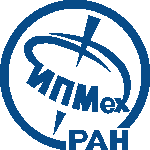
|
ИСТИНА |
Войти в систему Регистрация |
ИПМех РАН |
||
Translation, Interpreting and Culture: Old Dogmas, New ApproachesКонференция
- Охват: Международная
- Даты проведения: 26-28 сентября 2018
- Место проведения: Nitra, Словакия
-
Организатор:
Faculty of Arts, Constantine the Philosopher University, Nitra, Slovakia Faculty of Arts, Matej Bel University, Banská Bystrica, Slovakia Faculty of Arts, Comenius University, Bratislava, Slovakia Faculty of Arts, University of Prešov, Prešov, Slovakia The Institute of World Literature, Slovak Academy of Sciences, Bratislava, Slovakia -
Описание конференции:
Translation, Interpreting and Culture: New Approaches and Old Dogmas Nitra, Slovakia, September 26-28, 2018 Organized by Faculty of Arts, Constantine the Philosopher University, Nitra, Slovakia Faculty of Arts, Matej Bel University, Banská Bystrica, Slovakia Faculty of Arts, Comenius University, Bratislava, Slovakia Faculty of Arts, University of Prešov, Prešov, Slovakia The Institute of World Literature, Slovak Academy of Sciences, Bratislava, Slovakia Aims and Purpose Translation studies. Turns. U-turns. Re-turns. Post Translation Studies. History. Ivory Towers. Practice. Teaching. Translation. Interpreting. Audiovisual Translation. Media Accessibility. Methodology. Technology… Translation Studies have grown so exponentially and have developed so many branches and sub-branches, disciplines and sub-disciplines that it has become virtually impossible to follow the current development in the once rather “closed” field with quite clear methodology mainly based on Descriptive TS and quite a limited number of scholars interested in such research. The rapid development of the discipline can surely serve as a model academic success story. The four decades since it was properly named have seen both an enormous growth of infrastructure with the establishment of countless TS research and university bodies, journals, associations, etc. and productive advancement of its branches and subsequent diversification of the field. However, the very speed with which TS was built, has resulted in the fact that approaches or, to borrow from Snell-Hornby, paradigms and viewpoints, connected with various stages of the establishment of the discipline from the field-defensive stances to the voices confidently opening the discipline towards post-translation studies, co-exist. The challenge the discipline is facing today is an ontological one – TS needs to redefine itself in order to account for the changes in the research and development sector in its complex relationship with the world. What to keep and what to throw away? Where to open the boundaries and where to keep them closed? Is a contemporary adaptation of old concepts possible? Is it desirable? Is the concept of translation studies as one discipline sustainable or should we talk about several disciplines, homonymously named translation studies? Should the various regional variations be taken into account or do we want to adhere to a universal concept? The conference would like to address these and related questions from various standpoints by bringing together scholars focused on different paradigms and confront them with practicing translators and interpreters, who keep asking why. The goal of the conference is to map the status quo in the field in order to see how new approaches address the needs of changing societies and what the main barriers for practice and research in the field are. Modi operandi of the previous decades do not suffice anymore, or do they?
- Добавил в систему: Калинин Андрей Юрьевич
Доклады:
- 2018 A corpus-based approach to media interpreter training (Устный)
- Автор: Калинин А.Ю.